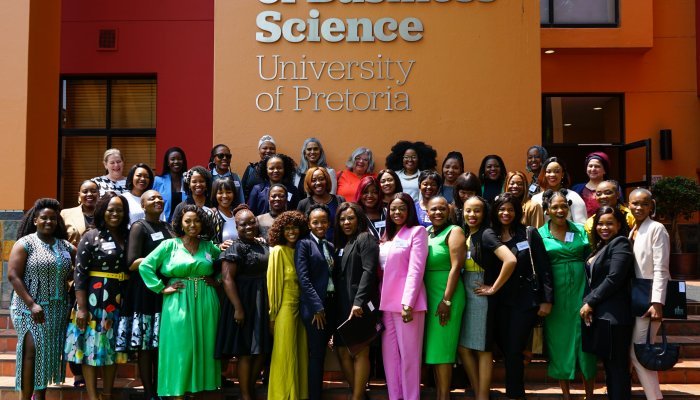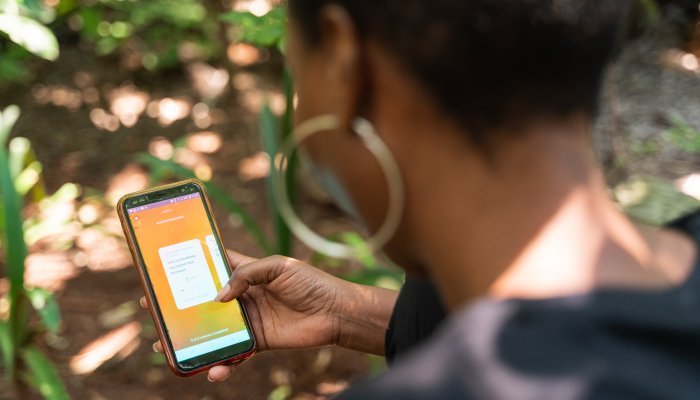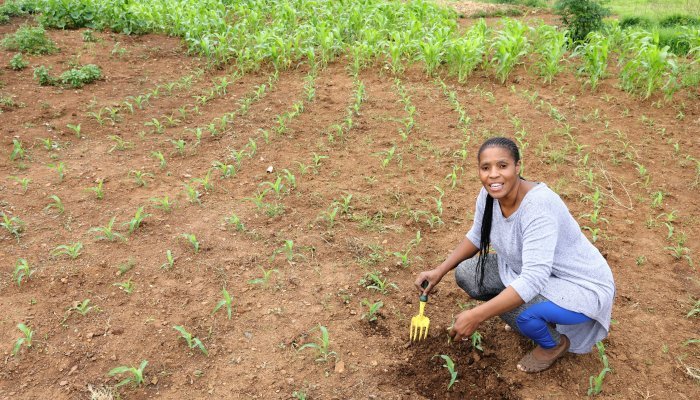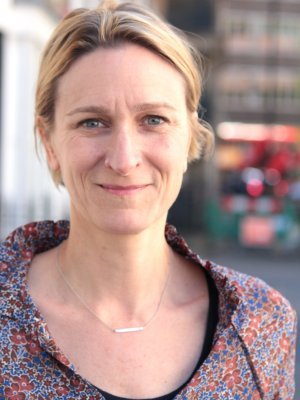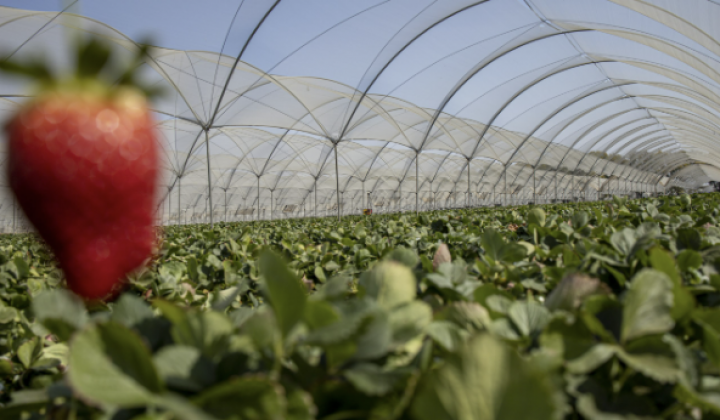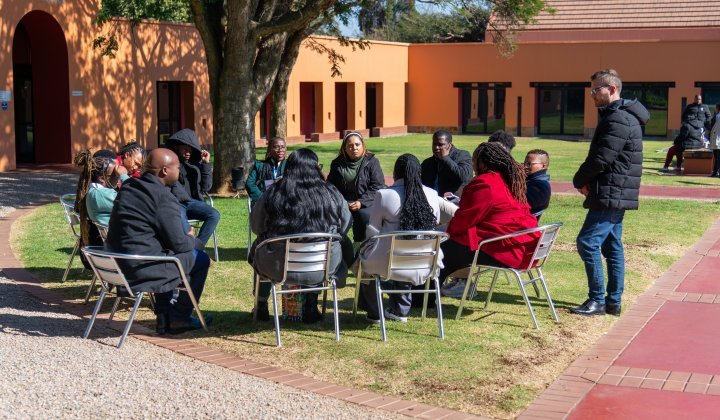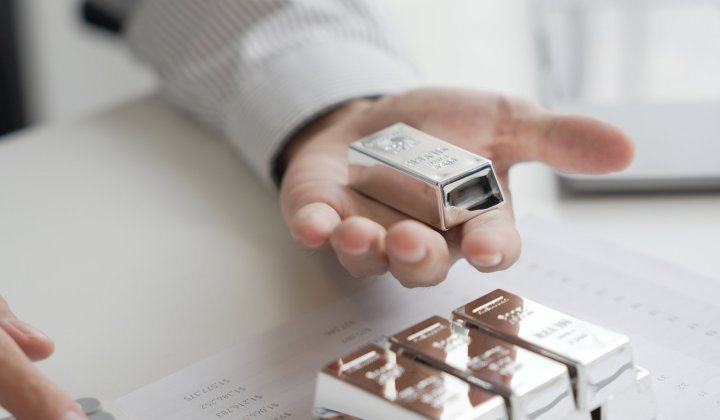Founded in 2008 by Cherie Blair CBE KC, wife of former British Prime Minister Tony Blair, the Cherie Blair Foundation for Women empowers women in low- and middle-income countries to start, grow, and sustain successful businesses so they are economically empowered.
Economic empowerment gives women life choices and financial independence – essential for women’s freedom and equality, says Emily Scott, the foundation’s director of programmes.
“Women entrepreneurs play a crucial role in driving global prosperity – their success creates a ripple effect of impact on families, communities and economies,” says Scott.
With gender inequality limiting women’s access to business opportunities, the foundation provides tools that enable equal access to economic opportunities in order to thrive.
Scott explains that globally, the foundation partners with other organisations to deliver training and mentoring programmes to boost women’s knowledge, skills and confidence, and advocate for better policies and practices.
“We collaborate to create fair business environments so women are not constrained by gender barriers and can reach their potential on their terms.”
She says the foundation’s gender-transformative approach means women can achieve their own economic objectives, create a better future for themselves, their families and their communities, and even contribute to global economic justice: “We press for change to stop millions of women being held back from having the choice and opportunity to thrive.”
To date, the foundation’s services have supported more than 230 000 women in 100 countries. A key focus country for the foundation is South Africa, where about 5 000 women entrepreneurs have been supported through four programmes since 2021.
Scott says that, through research, strong partnerships – including with the GIBS Entrepreneurship Development Academy (EDA), Seda, and DHL Express – and technology, the foundation has opened doors for many South African women entrepreneurs to knowledge, skills, networks, finance and markets.
GIBS delivers almost all the foundation’s programmes and connects women entrepreneurs with the HerVenture app, and “Road To …” trainings on campus and online.
Programmes
Globally, the Cherie Blair Foundation for Women offers five flagship programmes through a mix of app, online and classroom delivery.
HerVenture
In South Africa, the data-light HerVenture app is freely available to women entrepreneurs on iOS and Android. This app was designed by the foundation to support women with starting or running micro or small businesses in any sector.
HerVenture offers essential training and support on the go – offering topics such as launching a business, accessing finance, expanding market access, e-commerce and mobile money. Crucially for South Africa, it is free of charge, usable offline and data-light.
Road to Growth
This training programme is delivered face-to-face at GIBS and online. It equips women with business skills, financial literacy, networks and confidence so they can achieve business growth. The programme offers seven weeks of training on topics including markets, digital marketing, financial relationships, and confidence to meet growth goals.
Road to Leadership
Delivered through GIBS, it blends classroom and online training for women entrepreneurs looking to boost their leadership. Over three weeks, sessions build women’s confidence, voice and decision-making as leaders and changemakers so they can influence the environments around them.
Mentoring Women in Business
This online initiative is available to match South African women entrepreneurs with dedicated professional mentors elsewhere in the world to overcome challenges, build confidence and knowledge and work towards business goals.
Mentors are business professionals who are interested in sharing their knowledge and experience, learning about different cultures and sectors, and supporting women’s entrepreneurial journeys.
Scott says most mentors come from the workforce of the foundation’s corporate partners, who also fund the programme, such as DHL Express, PayPal, Marsh McLennan and Bank of America. This is the first year that DHL Express – a key funder in South Africa and Kenya – has also funded the mentoring programme in South Africa.
Joy-Marie Lawrence, founder of Boardvisory Cape Town and a former mentee with the foundation, says her mentor was a valued sounding board and adviser.
“In the first few sessions, we focused on establishing trust and clarifying goals, which I worked towards and ultimately achieved. Working closely with a mentor over 12 months allowed me to make meaningful personal shifts,” says Lawrence.
Scott says these programmes support women-owned businesses in various sectors of South Africa’s economy, including education and training, agriculture, fashion design, food and drink, as well as a good deal of social enterprises and charities.
The foundation also has ambitions to bring its Road to Finance training programme to the country in the near future, to support women to access loans and credit for their business.
“Our programmes are carefully designed with set indicators to measure outcomes and impacts in order to ensure they achieve intended objectives.”
To evaluate the programmes and their impact on women’s businesses, set indicators are assessed through surveys before, during and after programmes to get feedback from participants on their experiences.
Participants are surveyed on a range of factors including business growth in terms of increase in revenue, profit, employees, customers and savings.
Furthermore, Scott says the foundation hires consultants in the countries they work in to conduct in-depth external evaluations of the foundation’s work for an unbiased assessment of the programmes and their impact.
“Our main goal is to support women to achieve their own economic objectives, which can also include achieving better work-live balance or building confidence.”
Challenges
With the entrepreneurial ecosystem constantly changing and presenting shifting challenges, especially for women, the foundation adapts its work to meet their needs.
The Covid-19 pandemic had huge effects on women-owned businesses. Many have increased financial pressures with nearly half of women surveyed in 2022 saying their unpaid care workload had increased. To this end, the foundation provides childcare for programme participants in some countries.
Post-pandemic, businesses face uncertainty due to rising inflation and interest rates and narrow profit margins. Of the women surveyed in South Africa, 96% said they wanted to learn more about managing their business through uncertainty – particularly strategies that support flexibility in target markets and developing business models for uncertain economic environments.
“We see these needs reflected in global funding initiatives with major institutional donors including a focus on economic development and climate in 2023,” says Scott.
Scott explains that digital tools are essential for women entrepreneurs, and yet many women lack access. “As part of our new strategy, we are committed to championing digital inclusion and increase accessibility to innovative digital services.”
Globally, gender stereotyping and its effects on entrepreneurship and economic participation remain. “Gender stereotypes undermine economic equality between women and men – we are using our research findings and advocacy work to address this issue.”
Successes
Scott said the foundation is proud to have supported women entrepreneurs through lockdown and beyond, increasing its digital services and pivoting programmes so women could access them from home.
“As women entrepreneurs continue to navigate the lasting effects of the pandemic, we remain agile in the way we work to meet their needs.”
The foundation supported more than 30 000 women entrepreneurs in 52 countries in 2022. Of these, 90% made progress towards their own objectives, 89% improved business management practices, 83% grew their networks, 60% improved their financial literacy, 59% increased business confidence, 58% increased business profits, 57% increased personal self-belief, 56% improved their business resilience, and 37% increased their employee numbers.
Now, the organisation has launched a new strategy entitled Ready for Business. The strategy will significantly scale up the foundation’s work to revolutionise business opportunities for one million more women entrepreneurs in low and middle-income countries by 2030 – the end point of the United Nations Sustainable Development Goals – and rapidly accelerate progress for women across the world.
KEY TAKEAWAY
The importance of empowering women entrepreneurs
Scott says empowering women entrepreneurs is key to achieving economic prosperity globally, especially in low- and middle-income countries where at least 231 million women run formal businesses and many more run informal businesses to support their families.
If women and men participated equally as entrepreneurs, global GDP could rise by up to 6%, boosting the global economy by $2.5 trillion to $5 trillion.
“The economic impact of women’s entrepreneurial success will be not only be transformative but regenerative, as they invest back into their local community, education, healthcare and other essential services,” says Scott.
The Cherie Blair Foundation for Women in numbers
- More than 230 000 women entrepreneurs in more than 100 low- and middle-income countries supported since 2008.
- A global network of around 65 local partners.
- One in 25 women in Guyana use the HerVenture app.
- Gold accreditation for the Mentoring Women in Business programme awarded by the European Mentoring and Coaching Council in 2021.
Social entrepreneur: Mercy Manzini
A social entrepreneur since 2012, Mercy Manzini founded the Johannesburg-based Mercy’s Company to create jobs for her community during the pandemic. She has two other projects – one which advocates against gender-based violence and the other a youth development centre that empowers women and young people.
Through the HerVenture app, Manzini has learnt how to plan for her business, get sponsorship and expand her business.
“Ever since I joined the app, I have learned how to identify and hire skilled people for the company – and I have seen an improvement in terms of increased sales and new customers,” says Manzini.
Manzini says she reinvests the increased income back into the business by buying some much-needed equipment and plans to start drilling boreholes so that the business can be more sustainable.
Her social media skills have improved, and is now able to encourage and introduce other women to HerVenture, as well as host sessions on how to start a business.
“As a woman entrepreneur, my vision is to see women taking a stand and saying no to abuse – as a business owner, I want to see my business grow creating a legacy for my family,” says Manzini.


